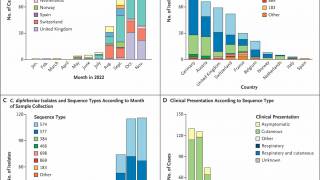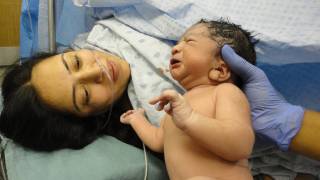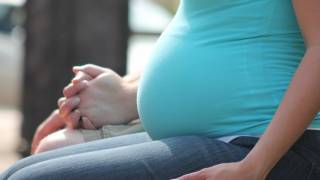Tdap Protects Newborns From Whooping Cough

There is another study regarding when expecting mothers should receive a pertussis (whooping cough) vaccine.
This study has more good news!
These researchers found vaccination with Tdap vaccine during the third trimester of pregnancy prevented 78 percent of whooping cough cases in babies younger than two months.
However, only 49 percent of the women who delivered infants during this study were vaccinated.
“With whooping cough cases on the rise, pharmacists can play a key role in stemming the spread of this vaccine preventable disease. We help family members welcoming a new baby to understand the importance of getting the Tdap vaccine to protect their newborn,” said Soni Bozeman, Pharm.D., a Clinical Pharmacist with Brookshires Grocery Pharmacy.
“We believe easy, affordable access to Tdap vaccines for parents and grandparents alike is key to decreasing the cases of whooping cough,” said Bozeman.
The Centers for Disease Control and Prevention (CDC) reported there is no evidence of adverse fetal effects from vaccinating pregnant women with an inactivated virus or bacterial vaccine or toxoid.
“Women have such a great opportunity to help protect their babies before they enter the world by getting Tdap vaccine while pregnant,” said Nancy Messonnier, M.D., director of CDC’s National Center for Immunization and Respiratory Diseases.
“This study highlights how babies can benefit when their mothers get the vaccine and reinforces CDC’s recommendation for women to get Tdap vaccine in the third trimester of each pregnancy.”
Additionally, the American College of Obstetricians and Gynecologists (ACOG) agreed with the CDC regarding the Tdap vaccine schedule for pregnant women.
The ACOG recommends OB/GYNs should administer the tetanus toxoid, reduced diphtheria toxoid, and acellular pertussis (Tdap) vaccine to all pregnant patients during each pregnancy, as early in the 27–36 weeks of gestation.
Moreover, if the new mother has not received the Tdap during pregnancy or their vaccination status is unknown, it is recommended they are vaccinated before being discharged from the hospital.
And, the ACOG says it is important all family members and caregivers of the infant are up-to-date with their pertussis vaccines before coming into close contact with any infant.
In one recent study of infants who contracted pertussis, approximately 85% got it from a member of their immediate or extended family when the source of the infection could be identified.
According to the CDC, whooping cough is a serious disease that can cause uncontrollable, violent coughing that often makes it hard to breathe.
Before the introduction of whooping cough vaccines in the 1940s, more than 200,000 cases were reported per year in the United States. After vaccines became available, whooping cough cases declined to fewer than 10,000 cases reported in 1965.
More than 30 percent of all whooping cough hospitalizations and 60 percent of all whooping cough deaths, are in babies younger than two months, reports the CDC.
There are two kinds of vaccines that protect against whooping cough, both are combined with vaccines for other diseases:
- Diphtheria, tetanus, and pertussis (DTaP) vaccines
- Tetanus, diphtheria, and pertussis (Tdap) vaccines
The current CDC vaccine price list can be found here. Most pharmacies offer the Pertussis vaccine.
Discounts for vaccines can be found at this webpage.
Our Trust Standards: Medical Advisory Committee
- Impact of the US Maternal Tetanus, Diphtheria, and Acellular Pertussis Vaccination Program on Preventing Pertussis in Infants <2
- Pregnant? Get Tdap in Your Third Trimester
- Effectiveness of Prenatal Tetanus, Diphtheria, and Acellular Pertussis Vaccination on Pertussis Severity in Infants
- Pregnancy and Whooping Cough
- Tdap (Tetanus, Diphtheria, Pertussis) VIS


























